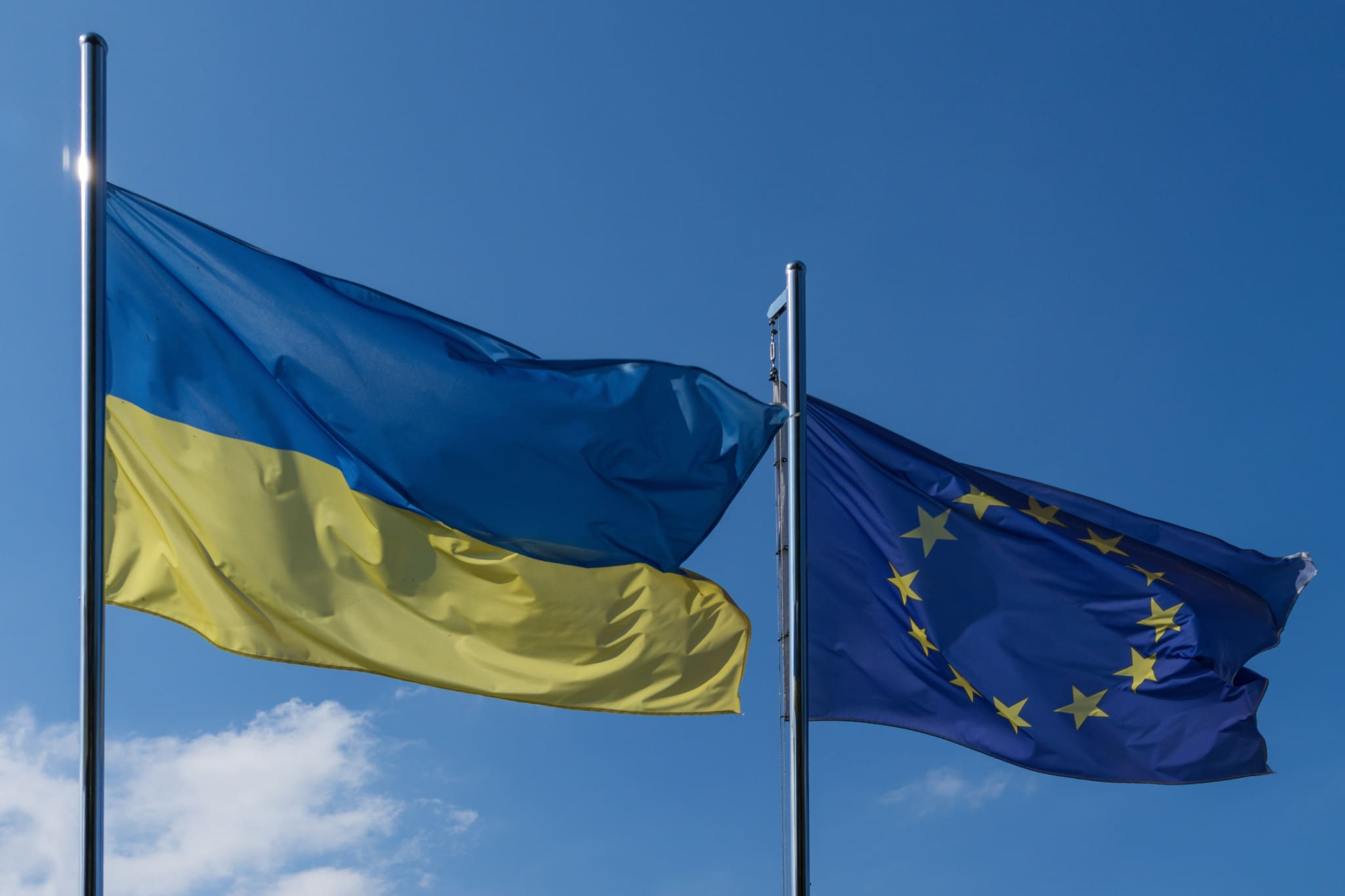This week, Ursula von der Leyen promised the European Commission’s position on Ukraine’s candidacy for membership. It is expected that the commission will propose to start the accession process, but if we take the accession criteria seriously, Ukraine’s accession under the fast-track procedure is out of the question, according to István Pócza.
The reality is that there is no realistic chance of Ukraine joining the EU. But stating the truth has somehow fallen out of fashion in Brussels, and has been replaced by a political mood devoid of any sense of sanity, a mood that is trying to keep up the excitement in an otherwise hopeless debate on Ukraine’s accession.
Ukraine’s accession to the EU has long been a topic of discussion among EU countries. The confrontation with Russia and military conflicts have always amplified these voices, but no concrete progress has been made on the issue. Not without reason. Even before the war, and even before the annexation of Crimea, Ukraine was not ready for EU membership. Since then, the situation has only deteriorated further from a legal and political point of view. Yet, there is an active discourse on fast-track or early accession. This is now a political category, i.e., a political position, a political debate, and a political decision.
“Becoming a member of the EU is a complex procedure which does not happen overnight. Once an applicant country meets the conditions for membership, it must implement EU rules and regulations in all areas,” says the first sentence of the summary of EU accession on the EU’s website. If we take the statement literally, the EU’s requirements rule out the possibility of Ukraine’s rapid accession without a pre-accession date.
Of course, it does not cost anything to rewrite a paragraph of an article on the internet. So, let’s look at the strategic requirements for accession and the specific criteria. Let’s start with the strategy: A key element of the consensus on the enlargement strategy is “the consolidation of EU commitments to ongoing accession negotiations.” Several negotiations are currently underway to admit new members: the EU currently has five candidate countries and two potential candidates, with Ukraine not falling into either. Ukraine’s accession to the EU is being fast-tracked possibly out of turn, which would jeopardize the accession negotiations already underway, and this runs counter to the first point of the enlargement strategy and the EU’s fundamental interests.
Preferential treatment for Ukraine would not be in line with the requirement to “apply fair and rigorous conditionality at all stages of negotiations with candidate countries.” The criteria referred to are contained in the so-called Copenhagen criteria. These include the existence of a functioning market economy, a stable democracy and the rule of law, as well as the acceptance by the candidate country of EU legislation, including the conditions for the euro.
A functioning market economy in a war-torn country is hardly the case. Similar questions arise for the criterion of a functioning democracy, which Ukraine did not quite meet even before the war (systemic corruption risks, an unpredictable legal environment, violations of minority rights, and other significant problems have been reported in recent years).
The exercise of administrative and police-military control over the territory of the state, which is more than impossible in a war situation, can also be seen as a fundamental element of a functioning democracy. In such a situation, the adoption of EU legislation and the introduction of the euro would be at best a political statement rather than a decision based on real legal grounds.
So, thus far, Ukraine does not meet the Copenhagen criteria.
Continuing with the strategic criteria, giving Ukraine special treatment would not meet the requirement of greater transparency and better communication in order to ensure broad and lasting support for enlargement among citizens.
In light of the above, it is easy to see how forcing Ukraine to join the EU would undermine confidence in the EU institutions, which is not strong in any event.
A final condition is “the EU’s capacity to integrate the new members.” When the 27 countries have long been unable to agree on enlargement in the Western Balkans, it is hard to talk of being ready to integrate a country torn by strife and currently at war.
If we take the accession criteria seriously, Ukraine’s fast-track accession is a long shot.
The excitement, however, is caused by the mood in Brussels, which is prepared to set aside all reason, rules, and fundamental interests when it comes to Ukraine.
Reality dictates that the war should first be ended and the country rebuilt. Then, we can discuss EU membership. The EU could offer more help in these steps, but talking about facts is no longer cool, and stating the truth has somehow fallen out of fashion in Brussels.





